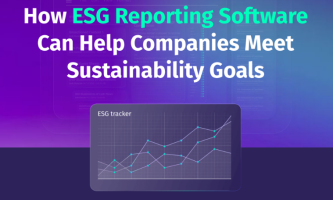A Comprehensive Guide To AI in Contract Management

Legal departments and firms worldwide are increasingly embracing Artificial Intelligence (AI) into their operations. This is despite fears from some lawyers as to the potential impacts. However, the evolution of AI into the legal profession should be welcomed because it will never replace the value of judgment-forming human lawyers. This stems from the fact that intelligence is a vital component of humanity, and AI extends on that quality. AI should be embraced as a value-building element that will facilitate the duties of lawyers and provide them with ample time to focus on more complex and demanding tasks. One notable area where AI is impacting the legal profession is contract management.
Understanding The Aspect Of AI
Artificial intelligence is also identified as cognitive computing. It identifies machine operations that copy human brain processes through making decisions based on some sets of data. AI programs operate through computer programs training and continuously trying through trial and error in unsupervised learning. Computers also learn from humans through supervised learning. An effective AI program can perform tasks that usually require human intelligence (Rich, 2018). For instance, these programs can translate languages and even recognize speech and objects.
Artificial Intelligence In Contract Management
Lawyers are increasingly using AI contract management software to classify contracts just in the same manner that some individuals are training AI programs to translate languages. On this note, lawyers are infusing AI programs with training sets that may comprise of different purchaser and supplier contracts. Upon the identification of the contracts, the AI program collects data from the training set in the classification of future contracts. In this regard, the program analyzes and examines the language that is commonly used in purchaser-friendly and supplier-friendly contracts. It is also possible for a lawyer to train the AI program to reject or request variations on specific language in the different types of contracts (Linarelli, 2021).
It is worth mentioning that AI programs differ from the contract management systems used previously in legal departments in the storage and organization of file sets (Agarwal, 2020). This is because cognitive computing programs fully understand the completion of certain tasks conventionally assigned to lawyers. For example, these programs can establish patterns with a set of data, perform a comprehensive examination and provide the results.
AI programs assist lawyers in identifying risks, future financial obligations, renewal and expiration dates, and anomalies. Lawyers are training AI programs on the actions required for specific contracts. For example, they are ensuring these programs send all non-disclosure agreements for review by the general counsel. Similarly, an AI program will have NDA contracts that meet the required threshold approved and executed. AI programs are also being used to remind lawyers of contracts that require to be renewed before the expiry dates. AI programs are also being established in ways that they can identify missing clauses in contracts.
It is essential to note that AI programs in the legal industry cannot advise clients, negotiate deals, write briefs, and appear in court.
Impacts of AI In Contract Management

AI is a whole new frontier to master. Studies show that AI can have a huge impact on business verticals. This section will study how AI will impact business verticals and contract management in upcoming years.
Increased Efficiencies
Conventional contract management is rather labor-intensive, time-consuming and often inefficient. This is particularly because the drafting of contact is quite lengthy. Lawyers must read thoroughly through their drafts and ensure that they have all areas of different parties covered. There are delays, particularly when more people are involved in the creation or approval of the contracts.
Based on the above facts, conventional contract management makes it utterly impossible and difficult for a lawyer to get a general grasp of all contracts. Lawyers in these departments handle large volumes of contracts. As such, it is often a struggle to extract requisite data into organized databases.
Furthermore, contracts in many legal departments are often scattered in different email inboxes and hard drives instead of being situated in one database (Rich, 2018). This, in turn, fuels disorganization that causes missed deadlines and costly errors.
It is worth mentioning that contracts make up a large percentage of financial transactions in entities. They also form the foundation and relationship between buyers and suppliers. As such, ineffective contract management can be quite catastrophic in terms of loss of capital. Studies have shown that companies lose about 9% of their annual revenues because of poor contract management costs.
It is, therefore, strongly recommended for legal departments to digitize their contracts into AI programs. This initiative will save not only time but also money (Rich, 2018). AI programs will assist legal departments in using algorithms to make decisions and organize information. Lawyers can also infuse AI programs with sets of training data on non-disclosure agreements. These programs can then be used to identify the specific language in the NDA contracts. As such, contracts that meet the stipulated requirements for NDAs are approved and submitted for execution.
It is also possible for AI programs to be trained to recognize agreements being reviewed and offer suggestions in terms of relevant provisions. For example, in the scenario the department frequently engages with a particular supplier, the AI program will be able to offer recommendations that have been utilized previously.
Greater Risk Intelligence
Contracts are quite sensitive and risky. In this regard, lawyers have conventionally been forced to monitor contracts throughout their enforcement period. With AI programs, lawyers are easily notified of deadlines. This frees them to tackle other meaningful and demanding tasks.
For example, lawyers through AI programs establish rules for deadline reminders. One may choose to “find all contracts with certain expiry dates and choose to be notified one month or two weeks before”. This initiative is undoubtedly time-saving and provides lawyers with time to mitigate risks associated with each contract.
It is also essential to note that forecasting is an attribute that all lawyers should strive to possess. For instance, an attorney may choose to determine whether litigation against a certain supply will be victorious. Experienced lawyers tend to have better forecasting attributes. Nonetheless, AI programs are much better and more accurate in the analysis of large sets of data. Through accurate predictions of potential contract litigation outcomes, lawyers will save entities significant amounts of money (Linarelli, 2021).
Greater Accuracy and Consistency
Undoubtedly, human beings are prone to errors. As such, relying on them to accurately review and draft contracts is ill-advised. As is the norm, individuals often copy and paste from templates when creating contract drafts. In this regard, they often or are bound to omit certain sections. Despite them spending countless hours going through the documents to ensure all aspects are covered and flagging problematic clauses.
It is based on the above facts that AI programs are highly recommended. They will reduce the costs and mistakes that are brought about by human error. There are some AI programs that prompt lawyers to choose specific clauses that they will accept or reject. As such, if a contract is uploaded but misses some important clauses, it is immediately rejected.
AI programs will also foster consistency in contract management. For instance, these programs can ensure that particular definitions are used across all contracts in the department or pertaining to a certain supplier. AI programs also allow for the extraction of key data from contracts (Linarelli, 2021). In so doing, they provide an overview of fundamental concepts in the contracts.
Some AI Contract Management Tools You Need To Know About

Currently, the market is saturated with AI Contract Management tools. However, you need to have a clear idea about what you want and need. This section is meant to educate you on some of the best AI Tools you can use for contract management.
Docusign CLM
Docusign CLM is the first AI Contract Management Tool that we would like to discuss. The tool is popularly lauded as one of the best AI-powered management tools in business. The tool is ideal for technical as well as non-technical users. This tool is best suited to manage small to medium-tier businesses. This application is known to process complex approval processes and mediate between clients and stakeholders. However, the application has a very modern user interface. This can be a little challenging for people with limited technological clarity. The pricing for this software ranges from £8 /month to £33 /month.
Icertis
The next AI-based contract management tool that we would like to talk about includes Icertis. Icertis converts contracts into strategies and strategic assets. This can help with compliance and other similar issues altogether. As a result, the application can streamline the contractual process and enable better decision-making. Icertis uses AI tools in order to create individual or mass-contracts. The platform also offers services like contract negotiation, risk assessment, and many more. Icertis works best in an AI-powered ecosystem. Therefore, you will not face any challenges while integrating this tool with other tools you have. One of the biggest cons of this tool is that the customer support team has a long response time. This can be challenging and can disrupt operational flow. As of now, the pricing for this tool is unavailable.
Contract Works
The third AI-based contract management tool on this list is Contract Works. This AI-powered tool is one of the best tools for managing business contracts and contract preparation. The tool helps in automating basic and mundane tasks. As a result, a lot of your time will be saved. This tool works in synergy with the ChatGPT architecture. Therefore, the application will enable you to do several tasks at one time, from preparing redline contracts automated email replies, etc. This is a great tool to have in your arsenal. However, the tool does not support integration with ERP or CRM tools. As a result, the tool can get a little restrictive in some sense. The pricing of the tool starts at around $700 per month and can go up to $2000 per month.
Conclusion
With that, you have reached the very end of our article about the role of AI in contract management. Before you start gravitating towards AI for contract management, just remember that AI is a new frontier. As a result, expect to see some major shifts in the design.













